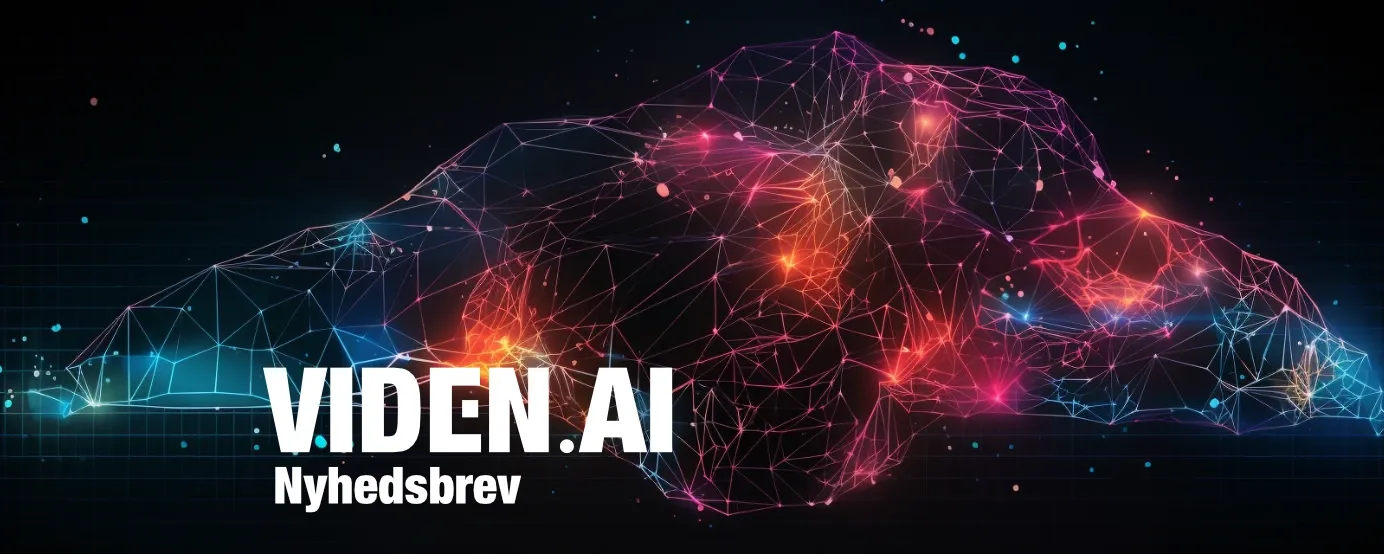We have selected some new articles that we think are worth reading if you want to stay updated on artificial intelligence in education.
In our newsletters, we also focus on a topic that is up to date. This time, it's about leadership with artificial intelligence, and we link to some articles at the bottom of the newsletter.
Happy reading!
News
23 April 2023: Martin Johannessen via LinkedIn
Artificial intelligence affects education, working life and society
April 21, 2023: Version2
Minister of Education promises guidelines for artificial intelligence
21 April 2023: Politiken (behind paywall)
Here, students are taught the use of ChatGPT
April 20, 2023: Folkeskolen.dk
Could ChatGPT be the start of a completely test-free school?
18 April 2023 - Politiken
Researchers: Artificial intelligence is changing everything, not least the education sector. Perhaps we should start by dropping exams altogether
17 April 2o23: Uniavisen
The future is now: UCPH softens rules on AI
17 April 2023: DR
Teachers are concerned about students' use of chatbots: What can we do and what can't we?
April 17, 2023: Radar
Government: Regulation of artificial intelligence must be balanced
April 14, 2023: Folkeskolen.dk
German Teachers' Association: Why both the oral and written tests should be rethought
13 April 2023: The debate on DR (video)
The debate: Ready for artificial intelligence?
New articles on Viden.AI
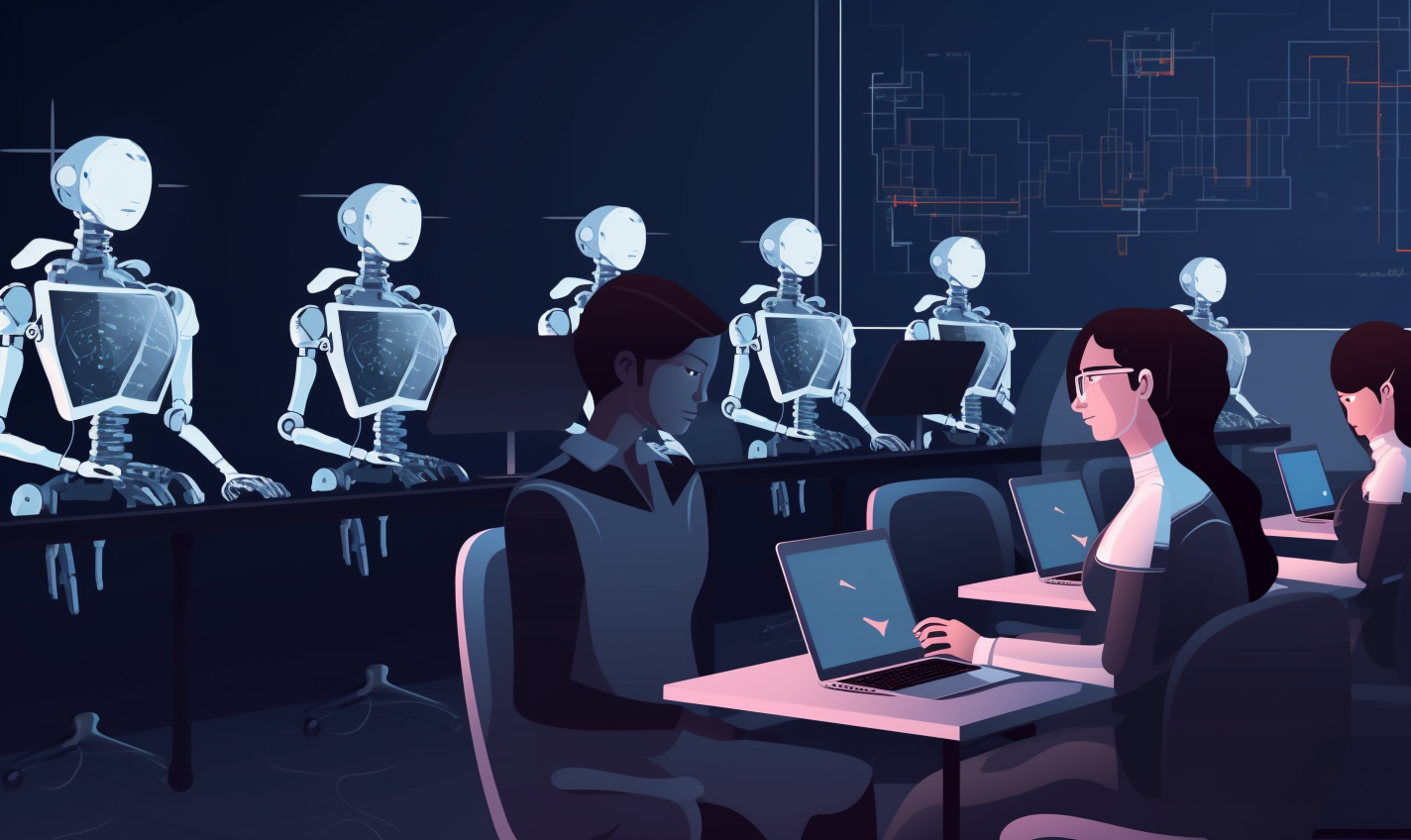
We have gathered a number of good advice on how to select tools for teaching on an ethical basis.

A guide on how to make images together with artificial intelligence. We have compared the largest systems that can generate images from text.
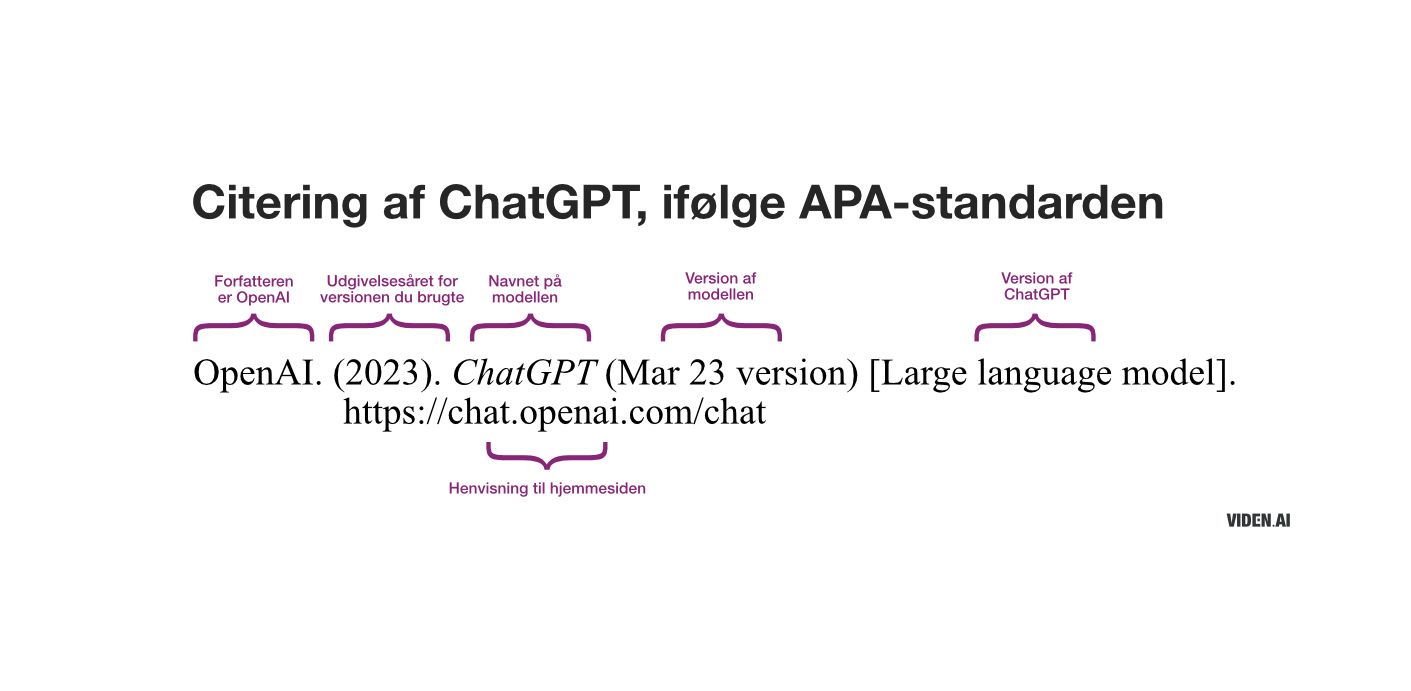
A review of how to make correct citation of the artificial intelligence. Here the APA standard is reviewed, but there are also links to MLA and Chicago.
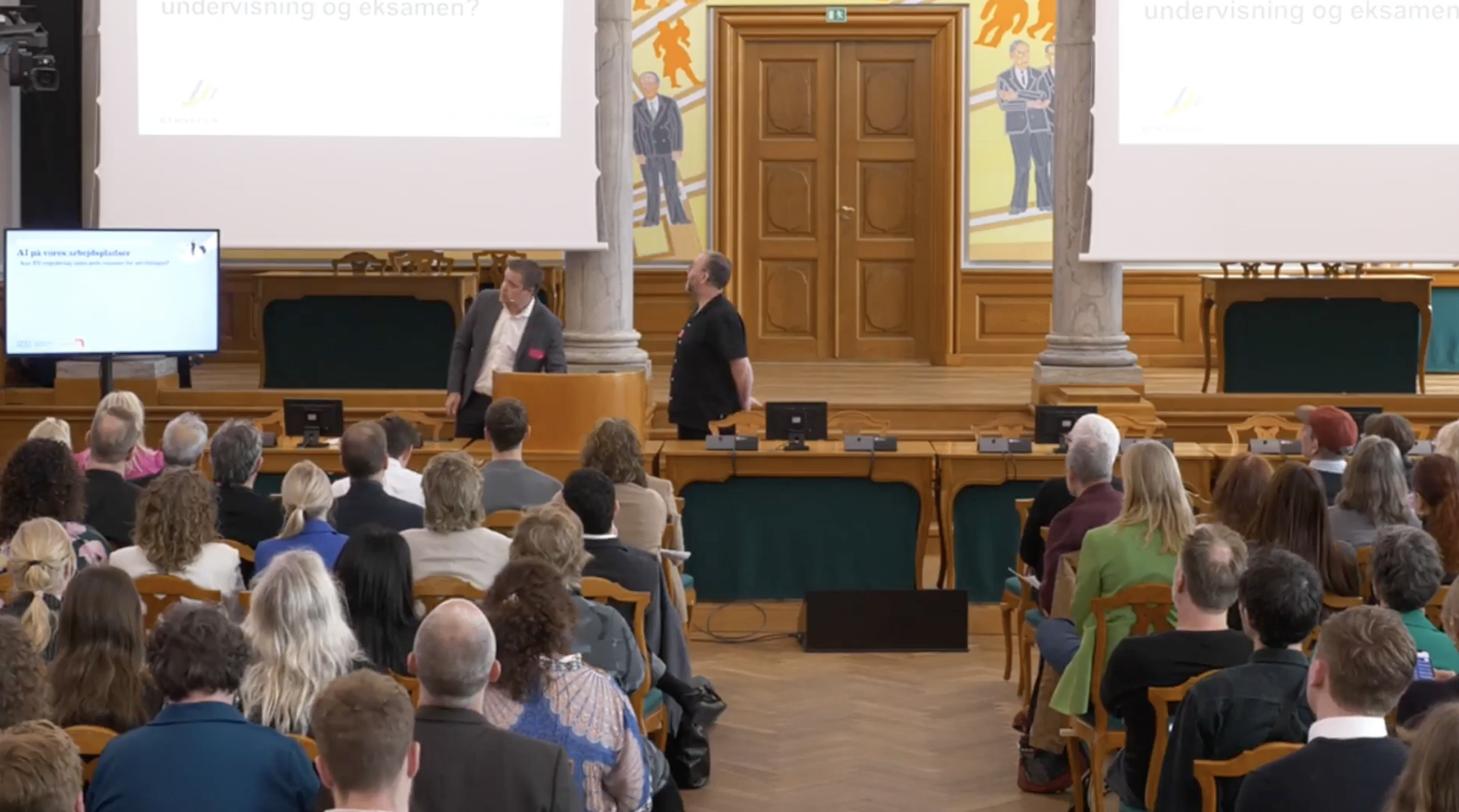
Claus and Per went to Christiansborg to talk about how artificial intelligence affects education. Here the focus was both on the school as a workplace, but also what the new technology does to our professionalism.
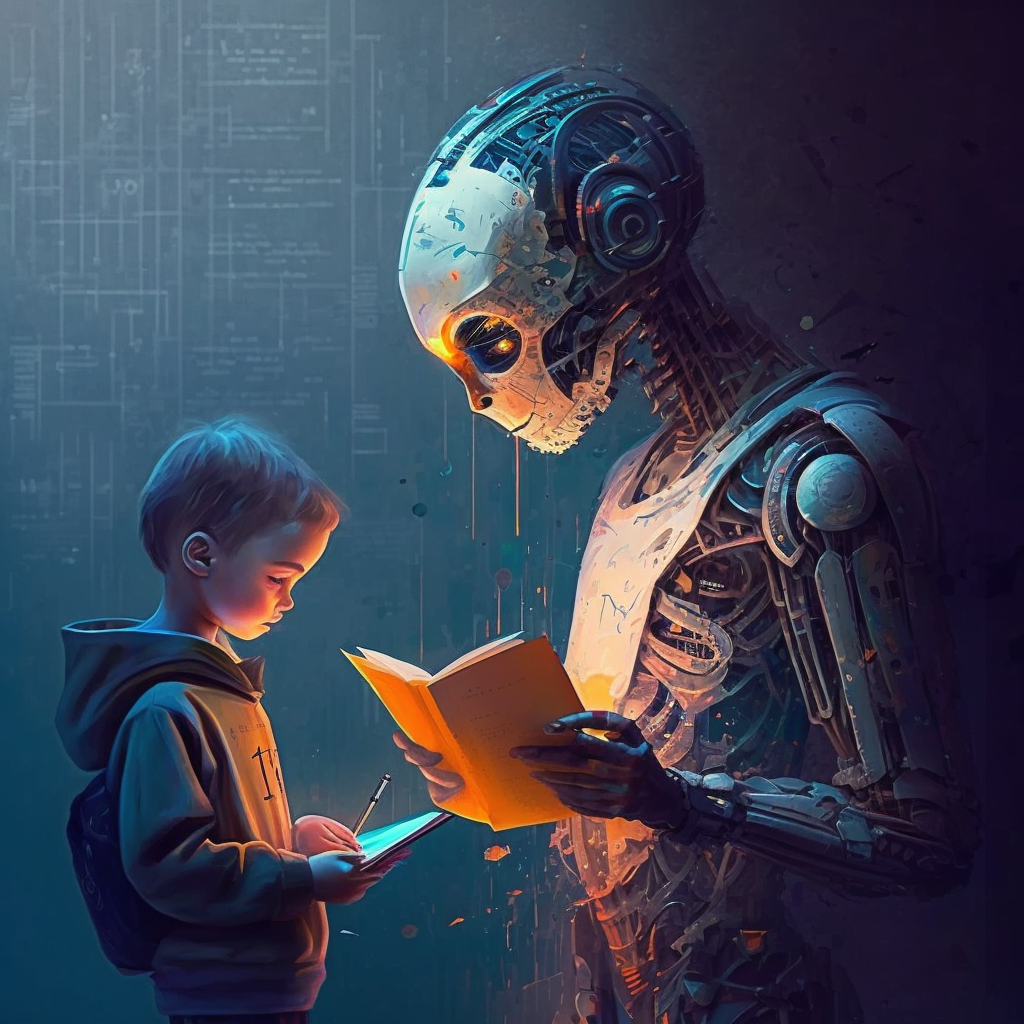
An ethical look into the massive data collection that may be carried out by OpenAI, and an idea of what they can use our data for.
Focus: leadership and artificial intelligence
In Viden.AI, we have not yet looked at management, but we will look into it because we believe it is important to make informed decisions. One can be dazzled by the many possibilities that exist in artificial intelligence. But our first studies on the subject paint a picture of how expensive it can become, and that it can also create more work and cause dissatisfaction in the workplace.
Below are three articles on the subject that are worth reading:
"Therefore, leaders at all levels must take an interest in artificial intelligence"
You should read this article if you are interested in leadership influenced by artificial intelligence and what this may mean for future management forms. The article requires login for Monday Morning.
Monday Morning has made a whole theme about artificial intelligence, and especially the article: "Why managers at all levels should be interested in artificial intelligence" by Stine Bjerre Herdel, is quite interesting.
The article is about algorithm management in the form of systems that can monitor employees. At the same time, there is a focus on bossware that can predict which people will go down with stress next and who should be promoted or hired.
For managers, this means that the algorithm will de facto go in and "interfere" in assessments and decisions that were previously up to the manager himself.

"Artificial intelligence creates large amounts of invisible work for managers"
You should read this article if you are considering what artificial intelligence can contribute to an organization. The article requires login for Monday Morning.
In the article, "Artificial intelligence creates large amounts of invisible work for managers" by Stine Bjerre Herdel, Ursula Plesner explains that it does not make everyday life easier when algorithms and machine learning become part of the organization. Although artificial intelligence can solve some standard tasks, it becomes difficult and expensive when the tasks are not standard. According to Ursula Plesner, companies often overestimate how much they can streamline with the help of digital technology.

"Artificial intelligence is coming: "You can't sit in top management if you don't have a basic understanding of this."
This article is interesting as it points out that top managers need to be equipped to understand the new technology. Behind the paywall at JP.
The article discusses whether managers should be trained so that they have a basic understanding of the influence of new technology on workplaces. At the same time, completely new structures are required in workplaces. According to Daniel Turi Hedelund, project manager for AI Denmark, artificial intelligence can give employees superpowers and thus double the company's productivity.

